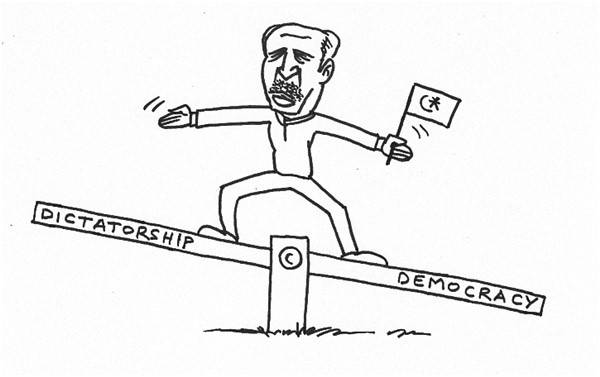
Turkey’s failed coup
Sir,
Quaid-e-Azam Muhammad Ali Jinnah wanted Pakistan to be a modern democratic welfare state where the Muslim majority could live in peace with members of other faiths, free from economic exploitation with justice for all. The father of modern Turkey, Kemal AtaTurk, also envisioned a modern secular welfare state. Both these Muslim majority countries were hijacked by adventurists and opportunists, slaves to their greed and myopic visions. Before this failed coup, Turkey was a victim of attempts to destabilise it by those who wanted to redraw boundaries and change regimes, replacing them with weaker states and juntas submitting to foreign dictates.
The Turkish constitution debars individuals holding foreign nationalities to hold any public office. Years of military rule had reduced Turkey to a country with the worst escalating inflation and a public debt of 74% of its GDP in 2002, which Erdogan successfully brought to under 39% by 2009. The Turkish military, which was one of most powerful and well trained professional forces in the region, got involved in corporate profitable ventures at the expense of the national economy, which also adversely impacted their discipline. Under Erdogan, appointments were made on merit, turning around loss making state-owned enterprises such as Turkish Air into profitability. Employment opportunities increased manifold while state investment on education and health upgraded human resources to meet the challenges of technological advancement.
Erdogan has won repeatedly at polls on his election manifesto of introducing Islamic reforms, but contradictions of authoritarian tendencies and assuming more powers for the president along with building a palatial palace spread over 50 acres costing $350 million has been a subject of criticism. He forgets Islamic traditions of simplicity and austerity. Recent allegations of financial impropriety have been leveled against his family. President Erdogan needs to introduce transparency and curtail allegations of corruption, especially now that the Turkish nation has expressed solidarity and support for the democratic process. He has a popular mandate to rule, but he must respect the wishes of those who differ with him and desire Turkey to maintain its secular identity while giving freedom of practicing religious beliefs, which the army had curtailed.
Malik Tariq,
Lahore.
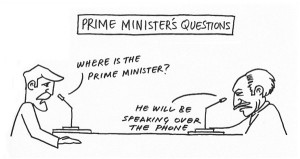
Q and A
Sir,
The British Parliament holds a weekly session, called Prime Minister’s Questions, and as the name suggests the sitting PM takes questions on all governance matters from both opposition and treasury benches in this session and give answers. It is a nerve wracking thing to imagine, to be grilled in a house full of lawmakers, but it is amazing to see how eloquently the prime minister answers each and every question, which indicates his/her grasp on all the matters going in the country and the world. The PM does not know what questions are coming from lawmakers, but he/she is always prepared to give satisfactory answers. This session of PM’s weekly accountability, which is telecast live, is a glorious example of democracy and transparency of governance in the UK. This Prime Minister’s Questions session of the British Parliament has become a box office show for the entire nation because it touches problems relating to all segments of society, therefore lot of people watch this live telecast with great interest. This session provides a win-win situation for all three parties concerned, the government, opposition and the public. It provides an opportunity for the opposition to point out the government’s shortcomings, it provides the government a chance to convey to the people its achievements and future plans, and it provides the public an opportunity on a regular basis to understand how the government and opposition are serving them. I suggest we should also have a Prime Minister’s Questions session in our Parliament on a weekly basis, wherein Prime Minister Nawaz Sharif or whoever follows him in future takes questions from lawmakers representing the entire country and give answers. Such a session will be very informative for the people of Pakistan and help bring transparency in governance, which is very important to strengthen democracy in Pakistan.
Ejaz Ahmad Magoon,
Lahore.
Black economy
Sir,
The consistency and commitment of this government and its predecessors to protect the country’s black economy will surely be appreciated by those for whom the investment climate must be discouraged and collecting taxes considered almost a sin. When our finance minister announced that CVT will be levied on actual profits incurred from the sale of real estate, which is sold within five years of its acquisition by an investor, it gave birth to hopes that finally this government may have realized that this Rs7 trillion industry, which pays a meager Rs4 billion as indirect taxes must be made to pay its due share, as is the practice in every responsible country.
If this budgetary taxation plan were to be implemented, it would encourage investors to pool money in the industry, boost the country’s documented economy, promote employment, and perhaps bring down spiraling Debt-to-GDP ratio in a country where external debt in the past three years has increased by an all-time high of $21 billion, most of it to boost our FOREX reserves.
What else could be expected from the wizards of FBR. It seems to be goal of every government that the Quaid’s legacy of a modern democratic welfare state where the curse of bribery and corruption were to be dealt with an iron hand must be defeated and not allowed to nurture. By withdrawing CVT on actual profits on sale of real estate evaluated at market price, the federal government has yielded to pressures of dons and mafias for whom Pakistan is a country ideal for profiteering and pilfering, but not one worthy to either live in, or for investment in job creating industries and promoting a culture of taxation.
T Ali,
Lahore.
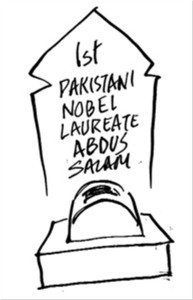
Failings of CIA
Sir,
I am a senior citizen. On 15th July I and my wife were to take a flight from Islamabad airport for the USA. We arrived at the airport around 6pm with lots of luggage and started looking for a porter. The porter desk was unattended and its booking supervisor was missing from the place of duty. Ultimately, we did find a porter, after much waiting and unnecessary delay.
The purpose of writing this letter is to point out the failings of the Civil Aviation Authority at the Islamabad airport. First of all, porter charges are extraordinarily high. Rs 400 plus another Rs 150 in tip, without which the porter wouldn’t let you off. Secondly, there are old and frail people travelling abroad, who may need help with their luggage. Why can’t they be timely facilitated? I hope the government agency concerned and the ministry concerned will look into this matter and publish an explanation in the press.
PS Ahmad,
USA.
Salam!
Sir,
I write this letter in remembrance of the most influential and widely respected Pakistani scientist, Dr Abdus Salam. Salam belonged to a rare breed of theoretical physicists who contributed immensely towards the pool of knowledge mankind has gathered. He was born in a lower middle class family in the north western district of Jhang, in undivided Punjab. He was the son of a teacher and received his primary education from a government school.
Dr Salam showed great commitment to his country when he decided to return to Pakistan after completing his PhD, to teach science at Government College Lahore. The Punjab government sponsored 1953 anti-Ahmadiyya riots, unfortunately, forced him to leave the country.
Serving his country was always Dr Salam’s priority. He was one of the scientists behind the establishment of the Pakistan Atomic Energy Commission. He played an instrumental role in establishing ICTP at Trieste, Italy in 1964, where he provided opportunities for third world physicists to learn and interact with scientists of international stature. Dr Salam worked with the Bhutto government till his community was officially declared out of the pale of Islam through a constitutional amendment.
The highest point of his career was when he won the coveted Noble Prize in 1979. In 1998, following Pakistan’s nuclear tests, he received some recognition when the Government of Pakistan issued a commemorative stamp in his honor, as a part of the ‘Scientists of Pakistan’ series.
This unsung hero passed away on the 21st of November 1996. He will continue to live in the hearts and minds of millions for all times to come.
Atif Mahmood Majoka,
Melbourne, Australia.
Food safety
Sir,
Ada Balochni is a small country side area situated 40km away from Faisalabad on the Lahore-Sheikhupura Road. Four days ago, I had to go there to buy fruits and vegetables. It was quite strange for me when I saw a person filling reused bottles with soda water via a soda maker machine in a dirty shop. He has been working since many years and supplying these bottles adjacent to near villages at the cost of Rs 5 per bottle. I observed improper handling, preparation and storage there.
In carbonated water, the carbon dioxide gas under pressure has been dissolved. Most carbonated water is sold in ready to drink bottles and beverages. There are some health effects of carbonated water as it may increase irritable bowel syndrome symptoms of bloating and gas due to the release of carbon dioxide in the digestive tract. Moreover, reused bottles are also dangerous as harmful bacteria develop in the bottle between uses. Mouth contact to the bottle openings can easily transfer bacteria to the water content, which can contaminate both the bottle and water.
Unfortunately, there is no proper check and control on food safety in our country. Many people are playing with the lives of innocent masses by providing them unsafe and unhealthy food. The Punjab Food Authority (PAF) regulates food safety and hygiene in the province. I request to the authorities concerned to take strict measures for handling, preparation and storage of food in the province.
Mansoor Ahmed,
Faisalabad.
Fake accounts
Sir,
Recently it was reported that a fake Facebook account of Sindh Inspector General (IG) of Police AD Khwaja was being maintained. The Sindh police spokesperson said that all the details, uploading, sharing, and content on that Facebook accounts were fake and baseless.
The police spokesperson said that creating any Facebook profile of anyone, particularity of policemen, was not only an offence, but a punishable crime.
The Punjab and Khyber Pakhtunkhwa provincial governments have done quite a good job in Pakistan as they have created profiles/pages of officials and organisations. However, it is both of these governments that should properly market these profile as we remember what recently happened with Khyber Pakhtunkhwa CM Pervez Khattak and Darren Sammy.
The Sindh and Balochistan provincial governments and government of Pakistan must instruct all their departments/organisations to create accounts on social media and properly manage them.
All fake Facebook/Twitter accounts of government officials and organisations must be reported to the departments concerned.
Mubashir Mahmood,
Karachi.
Poet of principle
Sir,
Allama Iqbal played a vital role in the political awakening of the Muslims of subcontinent. He motivated and encouraged them to stand up for their rights and seek a separate nation for themselves, at a time when the majority of Indians wanted to make compromises and let the colonial rule continue. His political philosophy did not promote the intrigues, conspiracies and political opportunism which dominated the political class of that time. He opposed the Unionists in Punjab and in other Muslim minority states and encouraged Muslims all over India to strive for a separate national identity.
Allama Iqbal and his close associate Malik Barkat Ali openly supported Bhagat Singh in 1930 and moved a joint resolution in the Lahore High Court Bar with Dr Motisagar and Lala Jagan Nath Agarwal, condemning his trial. He played a leading role in the Masjid Shaheed Ganj issue, when a mosque located in Lahore was demolished on the night between 4th and 5th June 1935, by Sikhs. At the time Punjab was ruled by a coalition of which Feroze Khan Noon and Nawab Muzaffar were members. In 1929, Allama Iqbal openly opposed the trial of Ilmuddin Shaheed.
A few days before Allama Iqbal’s death in 1938, the All India Muslim League terminated its affiliation the Punjab Muslim League, of which he was the president. The move was engineered by a committee of Unionists, led by Sir Sikandar Hayat, who opposed Allama Iqbals politics of principles. It is sad to see that our politicians have not adopted the politics of principles, as practiced by Allama Iqbal. Instead they have chosen to follow the example of the Unionists of Punjab to use politics as a means to acquire power and assets.
Gull Zaman,
Peshawar.
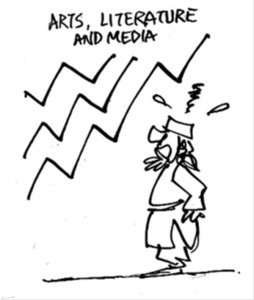
Privatise or perish
Sir,
State owned enterprises in Pakistan have been deliberately driven to technical insolvency by successive governments and civil and uniformed bureaucracy of this country, who administratively control these corporations. We live in a world where only specialists in a designated field must be appointed to head state corporations, instead of civil bureaucrats who are considered jacks of all trades.
Corporations like Railways, PIA, PSM, and PSO, which were once operating effectively and profitably, were driven to their present state of bankruptcy because of massive corruption and mediocrity that dominated their executive corridors. If these organizations are to be saved from collapse, they must either be totally privatised, or their management handed over to private parties of repute through schemes like 26% share holdings. In the event these steps are not undertaken, these corporations will have to be closed, because Pakistan does not have fiscal space to dole out billions of rupees into these bottomless pits.
Corruption cannot be eradicated by lectures or seminars, but only by giving exemplary, severe punishments to those who hold the highest paid public offices. Otherwise, this country will face an institutional collapse. Can somebody in government explain why nobody involved in financial terrorism has been punished in Pakistan?
Rahat Siddiqi,
Karachi.
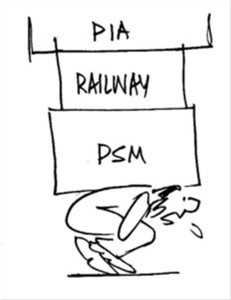
Yes we can
Sir,
I am writing this letter to appreciate the progress in the fields of media, literature, fashion, education and IT in Pakistan. Pakistani media has come a long way since the early days when PTV was the only channel. There are now numerous channels that cover a wide range of fields, such as current affairs, entertainment and sports.
Innovative projects like Coke Studio provide a platform for both established and emerging musicians. Acclaimed and well received movies like Bol, Khuda Kay Liye and Waar show how the Pakistani film industry is evolving from the ‘gandasa’ culture to something more substantial and thought provoking. Pakistani television plays like Humsafar have gained popularity worldwide.
With regard to literature, there are a lot of young, talented writers like Mohsin Hamid, author of Moth Smoke and The Reluctant Fundamentalist. The IT revolution has made a significant impact on the Pakistani society. Among the numerous benefits of internet are the availability of online education and increasing voter awareness.
The fashion industry is one of Pakistan’s most flourishing sectors. Events like fashion weeks provide a platform for designers and models and make a positive impact on society, especially the youth.
Finally, conditions are also improving in the field of education. There are now numerous opportunities for women and people from rural areas, who are becoming increasingly aware of the importance of education.
Rabia Basri,
Lahore.

